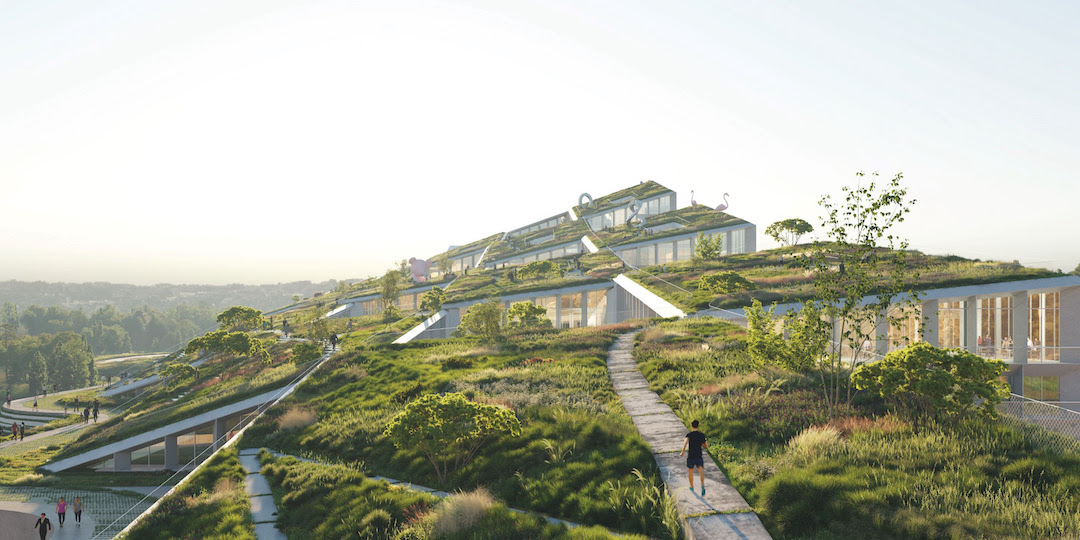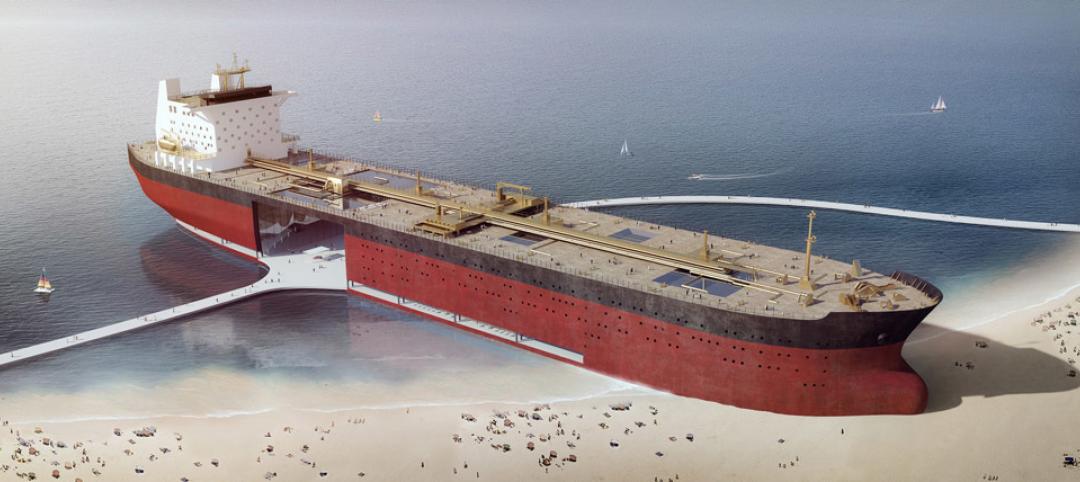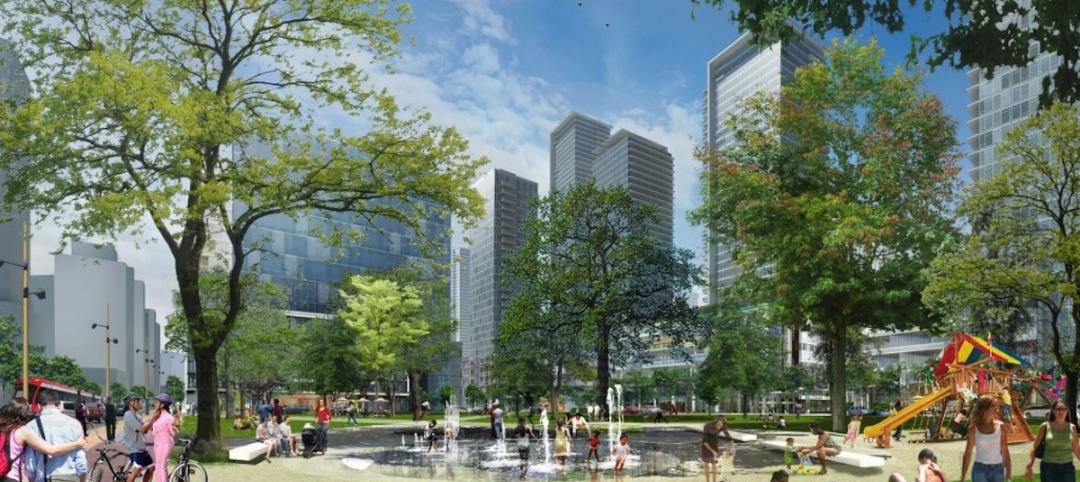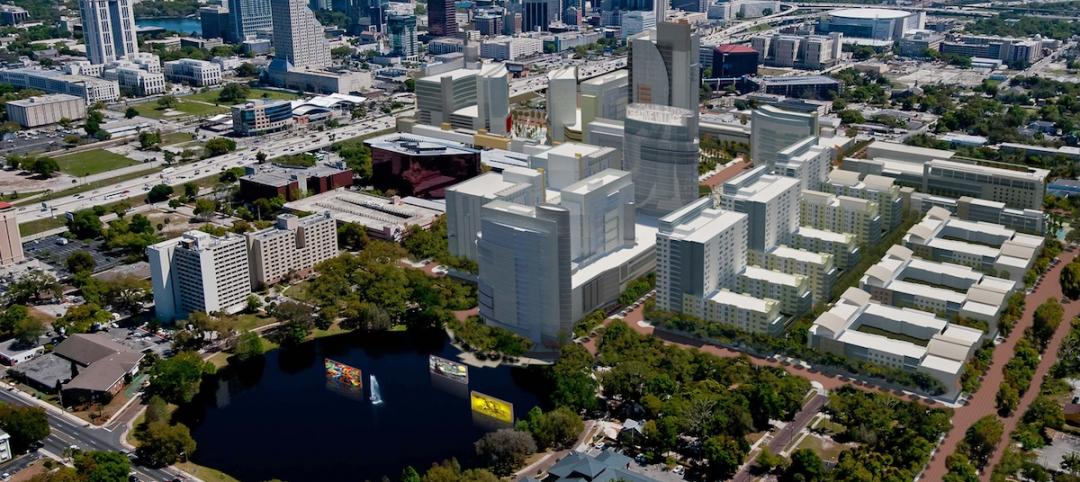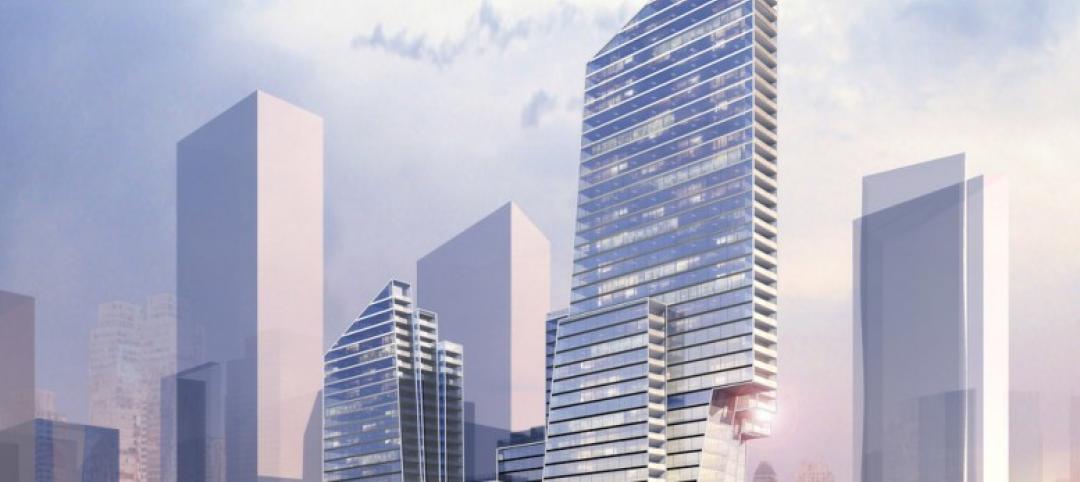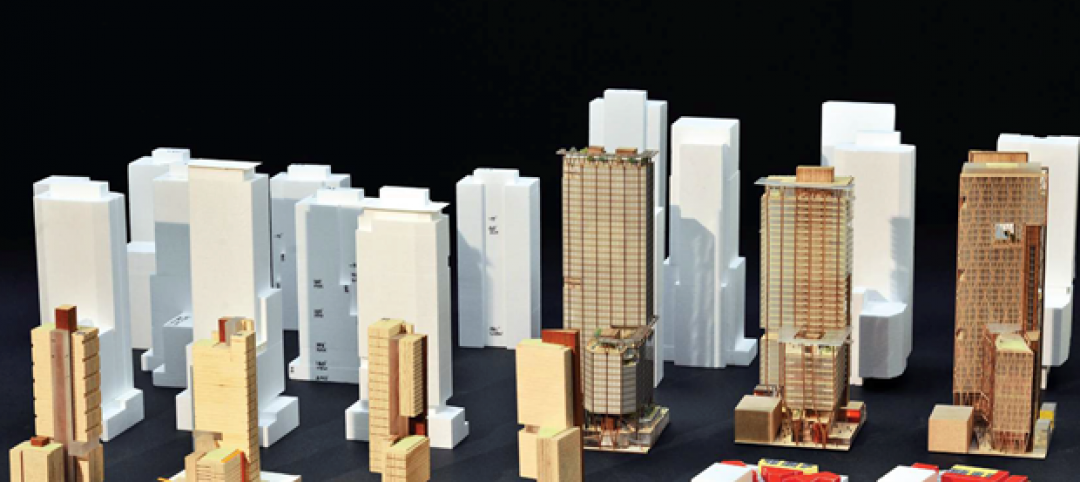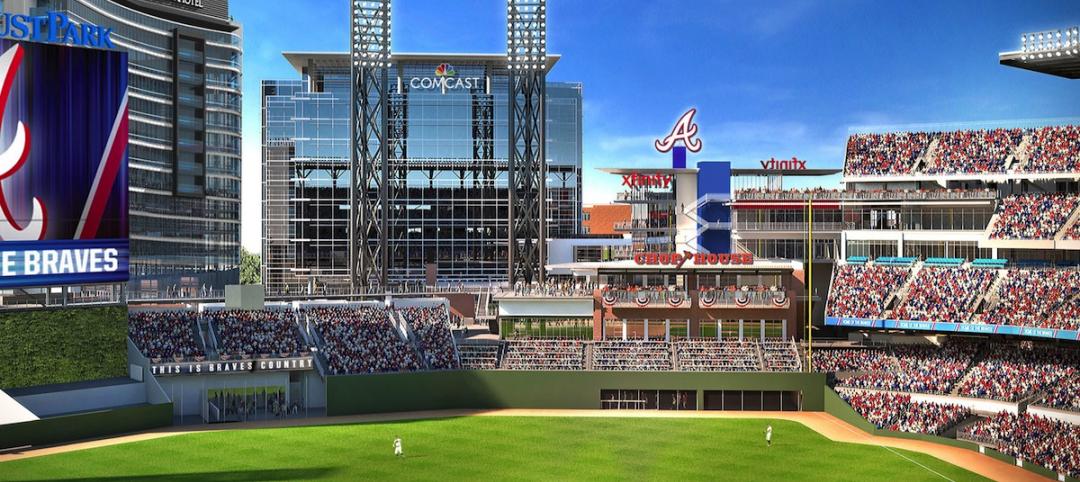BIG has unveiled the design for a new headquarters building for Farfetch, a luxury online fashion platform. The purpose-built “fashion village” will be built on the slopes of Leça River in Porto, Portugal and is part of the larger Fuse Valley site. Fuse Valley, also designed by BIG, will feature 24 buildings that will be home to various tech companies, startups, and services.
“Rather than a corporate office complex, Farfetch’s future home in Fuse Valley will be a lively urban ensemble bringing every curator, creator, customer and collaborator together in the most innovative new neighborhood of the city,” said Bjarke Ingels, Founder and Creative Director, BIG, in a release. “The urban fabric will allow Fuse Valley to grow and expand organically, like a natural village.”
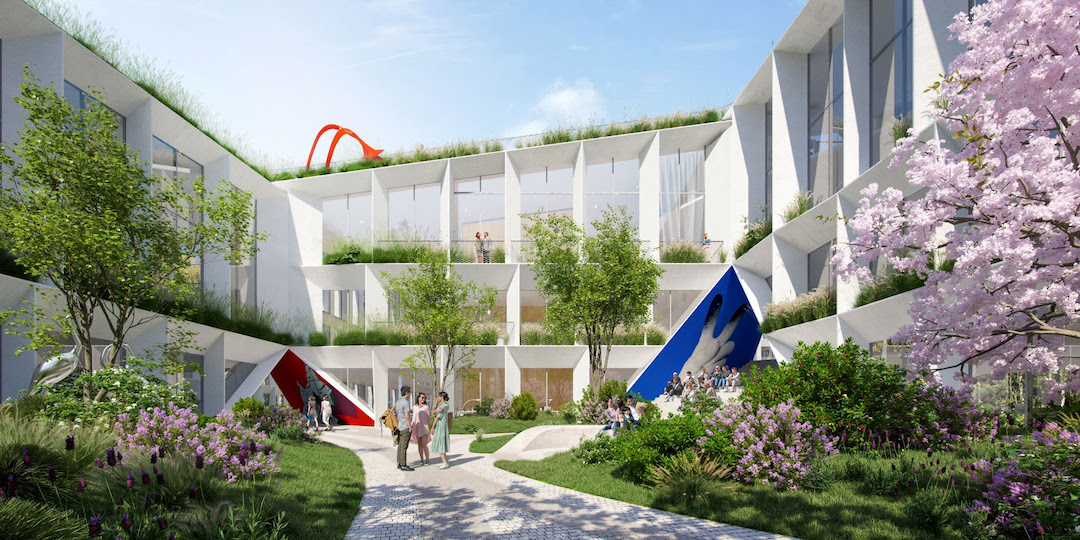
The Farfetch project will feature 12 interconnected buildings that each represent the various elements of the company’s organization, with the design of each space tailored accordingly. BIG’s design will amplify the exchange of ideas between the different aspects of the organization and create new opportunities for the approximately 3,000 Farfetch employees based in Portugal, visitors, and locals.
SEE ALSO: New resort will be carved directly into a mountainside
Fuse Valley as a whole is organized around plazas, parks, and courtyards that are landscaped and programmed to connect the indoors with the outdoors. Individual buildings rest on a series of urban terraces connecting the main road to the east with the Leça River to the west. Along the central arrival axis, an urban alley will open all the way from the street to the river. It will feature all the major public programs and amenities along the riverfront of Farfetch, including lobbies, an academy, an auditorium, a canteen, and wellness facilities.
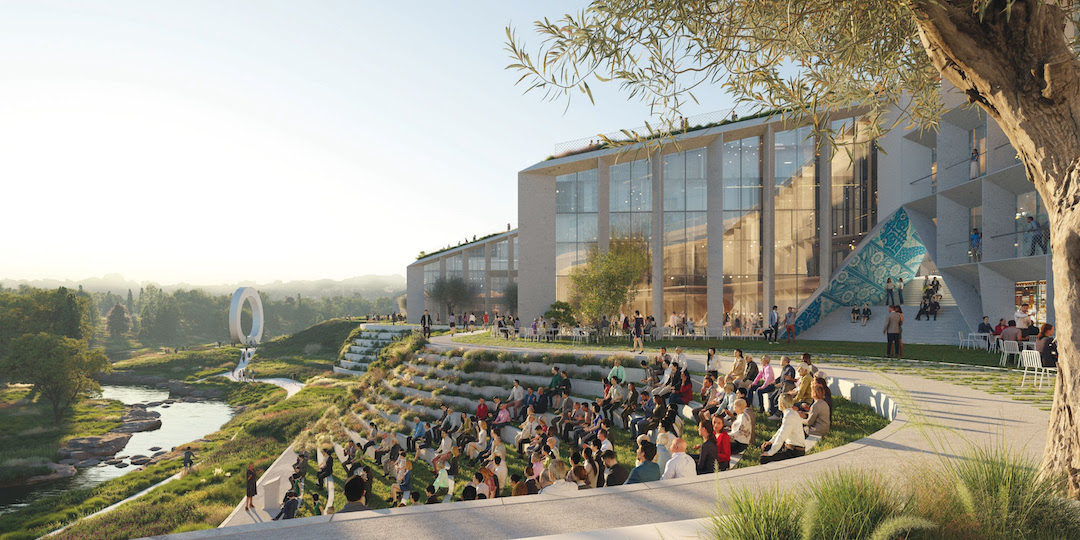
The project will be a manmade extension of the hillside. The roofs of the new buildings will rise and fall to create peaks and valleys with slopes and terraces providing employees with open spaces to enjoy breaks and host gatherings. Paths will extend from the landscape to the roofscape, creating flexible way finding for people to move around the complex.
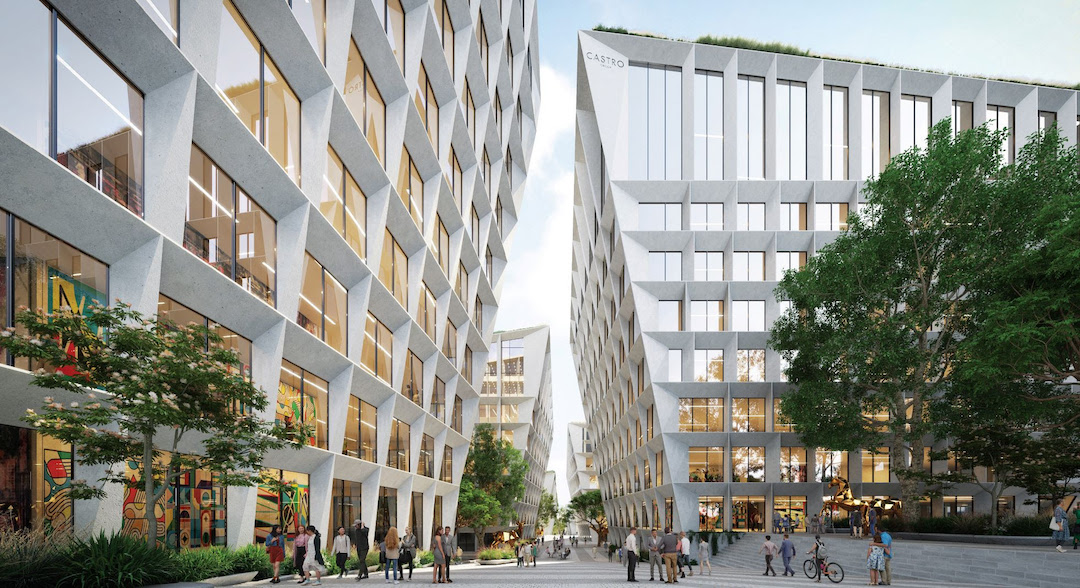
Facades will recede at the ground flow to expand the public realm and create natural canopies to welcome visitors. The chamfered corners of the buildings will merge to create archways and openings between the courtyards that will act like canvases for different artistic expressions. Atelier-like attics with additional ceiling heights and open mezzanines will be created by the sloping roofs of the buildings. Open connections extend from the attic mezzanines all the way to the ground to create visual and physical connectivity across all floors.
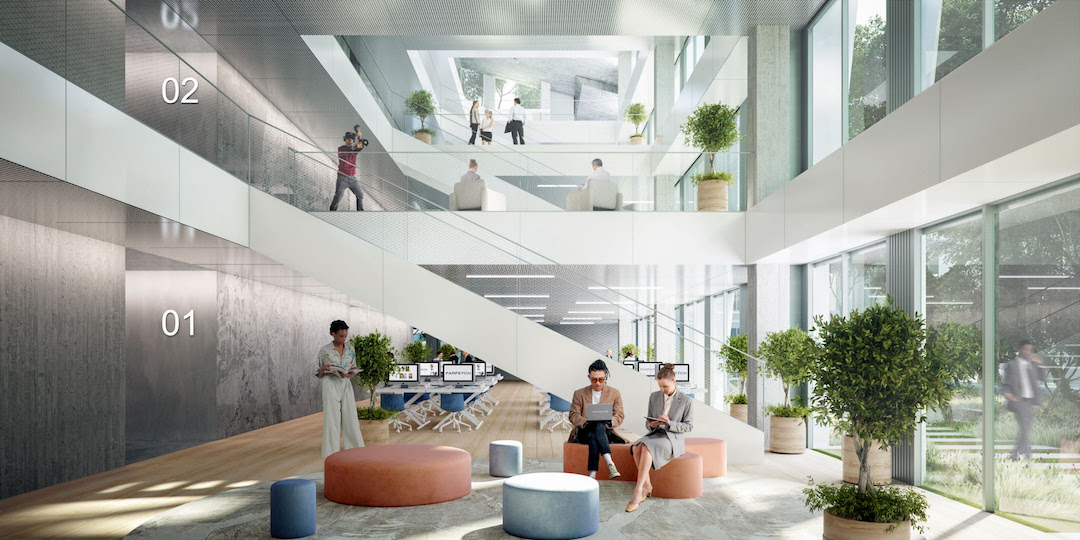
The interior of all the buildings will prioritize an immersion in nature and provide a biophilic environment that will increase productivity and wellbeing. The vegetation will also provide a naturally shaded and cooled environment.
The Farfetch HQ project is slated to break ground in early 2023 and open in 2025.
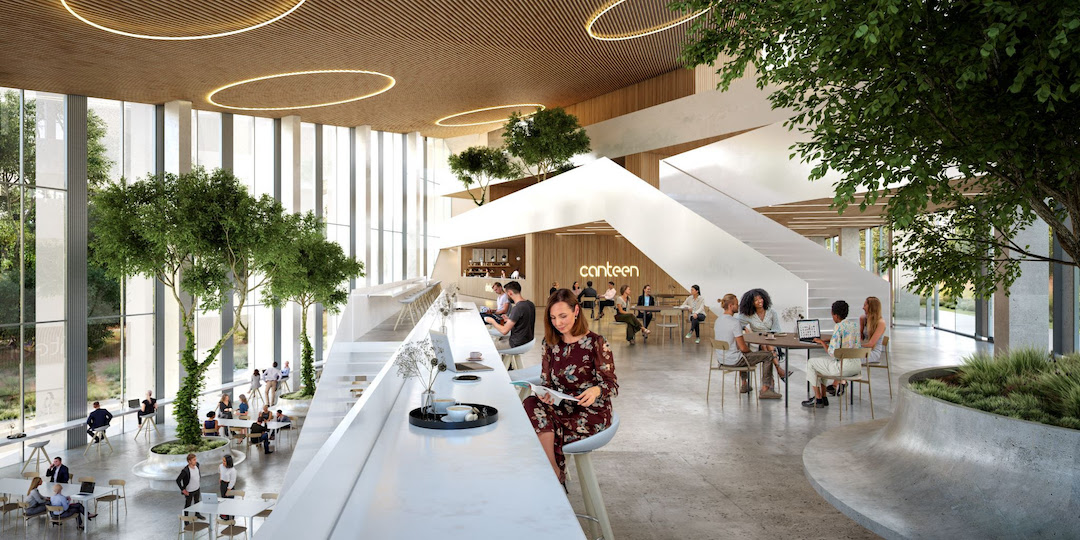
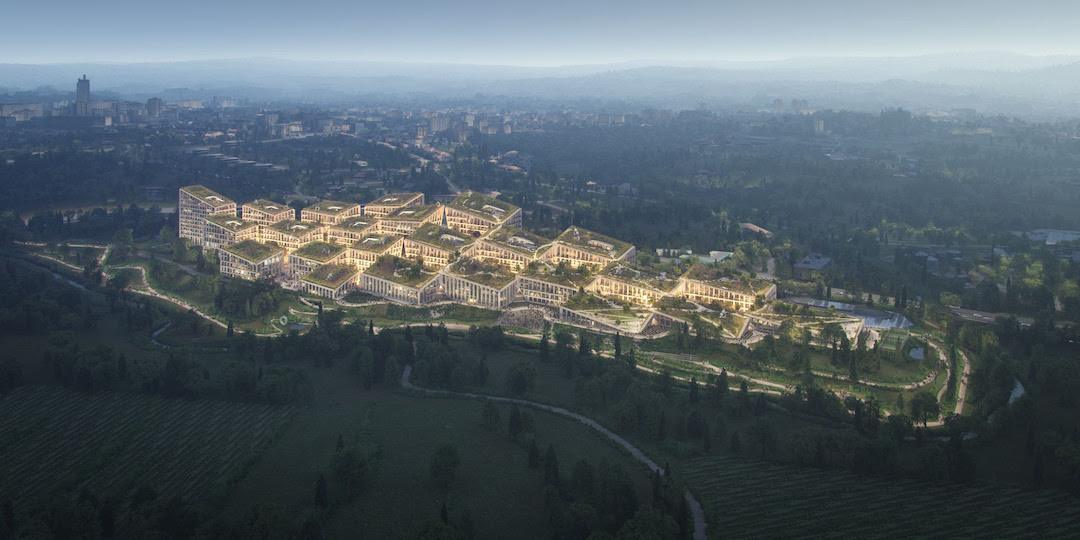
Related Stories
High-rise Construction | Jul 7, 2015
Bjarke Ingels designs Frankfurt skyscraper with a surprise in the middle
Several levels in the center of the 185-meter tower are shifted outward to allow for terraces with city views.
Cultural Facilities | Jun 10, 2015
Artists turn oil tankers into architecture
Four Dutch artists propose transforming tankers into monuments with mixed-use space.
Wood | Jun 2, 2015
Michael Green Architecture designs world's tallest wood building for Paris competition
“Just as Gustave Eiffel shattered our conception of what was possible a century and a half ago, this project can push the envelope of wood innovation with France in the forefront," said architect Michael Green of the project.
Smart Buildings | May 28, 2015
4 ways cold-climate cities can make the most of their waterfronts
Though cold-climate cities pose a unique challenge for waterfront development, with effective planning waterfront cities with freezing winter months can still take advantage of the spaces year-round.
Sponsored | Coatings | May 14, 2015
Prismatic coatings accent the new Altara Center
This multi-use campus will contain a university, sports facilities, medical center, and world-class shopping
Mixed-Use | May 10, 2015
Construction on Orlando’s massive ‘innovation hub’ is finally starting
The $1 billion Creative Village development will create a business and education hub.
High-rise Construction | May 6, 2015
Two new designs submitted for New York City Riverside Center
Both designs reference the cantilevers and other elements featured in architect Christian de Portzamparc’s original masterplan for the complex, which has now been scrapped.
Building Owners | May 6, 2015
Hackathons and RFCs: Why one developer killed the RFP
In lieu of an RFP process, Skanska Commercial Development hosted a three-week "hackathon" to find an architect for its 2&U tower in Seattle.
Mixed-Use | May 5, 2015
Miami ‘innovation district’ will have 6.5 million sf of dense, walkable space
Designing a neighborhood from the ground-up, developers aim to create a dense, walkable district that fulfills what is lacking from Miami’s current auto-dependent layout.
Hotel Facilities | Apr 30, 2015
Atlanta Braves partner with Omni Hotels & Resorts to build hotel near new Suntrust Park
The Omni Atlanta Northwest Hotel will feature 16 floors with 260 guest rooms and suites, rooftop hospitality suites, 12,500 sf of meeting space, a signature restaurant, and an elevated pool deck and bar overlooking the plaza and ballpark.


